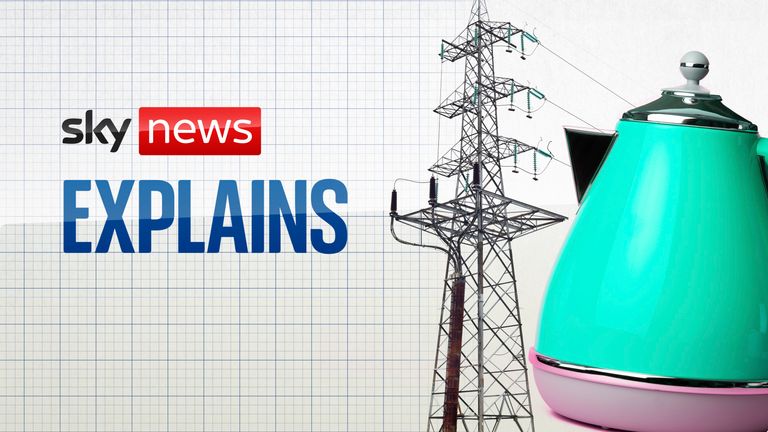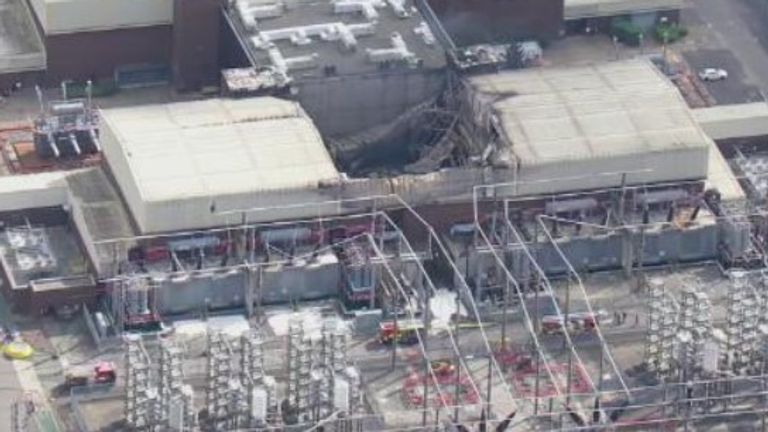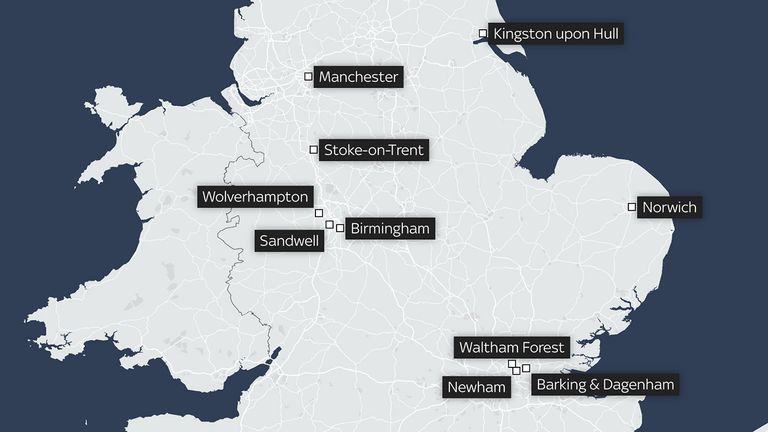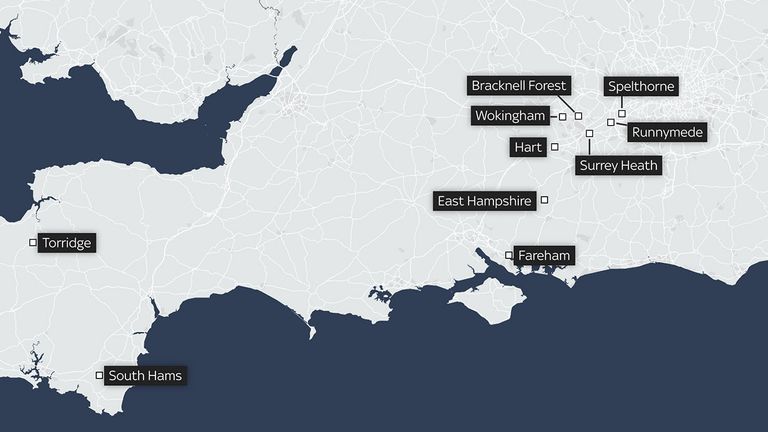Energy crisis: Fuel poverty warning as price cap goes up at time of ‘chaos’ for economy

A 12% rise in the energy price cap has taken effect amid warnings further increases are inevitable in the months ahead as wholesale costs surge in a time of “chaos” for the wider economy.
Labour, which has claimed a “winter of discontent” looms, accused the government of complacency over “the fuel crisis, energy costs crisis, and supply chain crisis” – factors all being blamed for adding to consumer and business costs.
The price cap shift will affect more than 15 million households stuck on so-called default tariffs – price plans for gas and electricity provision that are automatically charged to those who fail to switch or select fixed-rate deals.
The cap is rising by £139 to £1,277 while prepayment customers will see an increase of £153 to £1,309.
Ofgem, the industry regulator which is charged with making the cap fair for suppliers and customers alike, said at the time of its price cap review in August that the hike reflected a 50% increase in wholesale energy costs over the past six months.
However, industry experts have warned that another leap is likely to be imposed from April – when the next review is due to take effect – as wholesale gas costs for next-month delivery have only accelerated.
Figures from industry analytics firm ICIS this week showed an increase of more than 600% over 12 months.
Contracts for delivery in March are currently at levels just below those for November.
The rocketing sums prompted senior economist at the Resolution Foundation, Jonny Marshall, to declare that “another big rise” in the price cap lay ahead.
“There is little respite in sight for energy bills going up and up and up,” he told Sky News.
The unprecedented and staggering pace of the increases as the weather turns have been blamed for the deluge of small energy company failures – 10 of them last month alone – as their business models leave them at the mercy of near-term price spikes.
The reasons for the record price levels are many and complex but can be largely put down to global supply issues as economies get back in gear following COVID-19 disruption.
A cold end to last winter in Europe left gas stocks lower than usual and competition for raw energy more widely has intensified globally with China, the world’s second-largest economy, experiencing blackouts.
In the UK, a lack of wind generation and even a fire in Kent last month have been blamed as contributing factors.
The spike in power prices has forced attention on the impact on households amid warnings that higher energy bills will combine with the loss of government aid packages to leave millions of families facing hardship.
Data from the campaign group End Fuel Poverty Coalition suggested the rise in the price cap alone would see the numbers in fuel poverty in England rise to an estimated 4.1 million.
Its research identified Barking & Dagenham, Stoke-on-Trent, Newham, Shropshire, Herefordshire and King’s Lynn and West Norfolk as fuel poverty “coldspots”.
A report by Citizens Advice on Thursday said the poorest households could lose £37.40 a week as energy company failures coincided with the end of the pandemic-driven £20 Universal Credit uplift and furlough scheme.
Consumer groups say the best way for energy customers to protect themselves from rising gas and electricity bills is to review their tariff and shop around but, given the scale of the wholesale price increases, some admit the price cap could prove the best defence in the short term as suppliers are forced to pay record sums in the current market.
The ability to afford the cost of a break or evening out is also shrinking as a temporary cut in VAT to help hospitality and tourism businesses recover from the pandemic has been partly withdrawn – rising from 5% to 12.5%.
All this as the economy battles a record worker shortage in the wake of Brexit with the 100,000 shortfall in HGV drivers raising costs in the supply chain and contributing to the current fuel delivery crisis that has seen many forecourts sucked dry by panic-buyers.
The Bank of England expects the rate of inflation to surge from its current level of 3.2% to beyond 4% by the end of the year – with governor Andrew Bailey admitting this week that the economy faced “hard yards” ahead.
Critics of the government have accused ministers of sleepwalking into the price crisis and demanded more intervention.
Labour declared that the new £500m household support fund for England, revealed on Thursday, was a “temporary and inadequate sticking plaster” as families grapple challenges on many fronts.
Shadow business secretary Ed Miliband said: “We are in desperate need of leadership to contain this chaos.
“It is Conservative complacency that has led to the fuel crisis, energy costs crisis, and supply chain crisis our country is experiencing, with ministers ignoring warnings from businesses and failing to plan ahead.”
He added: “Ministers are blaming the public and failing to acknowledge the scale of the problem.
“We need to make Brexit work, and that starts with addressing the huge shortfall of HGV drivers that is causing mayhem in our supply chains.”
A spokesperson from the Department for Business, Energy and Industrial Strategy said: “The energy price cap is shielding millions of customers from rising global gas prices. Even with today’s planned increase, the cap still saves households up to £100 a year and is in addition to wider support for vulnerable, elderly and low-income households.
“Earlier this week we announced a new £500m Household Support Fund which will help those in greatest need with the cost of essentials over the coming months – and families will continue to benefit from Winter Fuel Payments, Cold Weather Payments and the Warm Home Discount, which is being increased to £150 and extended to cover an extra 750,000 households.”
Source: Read Full Article








